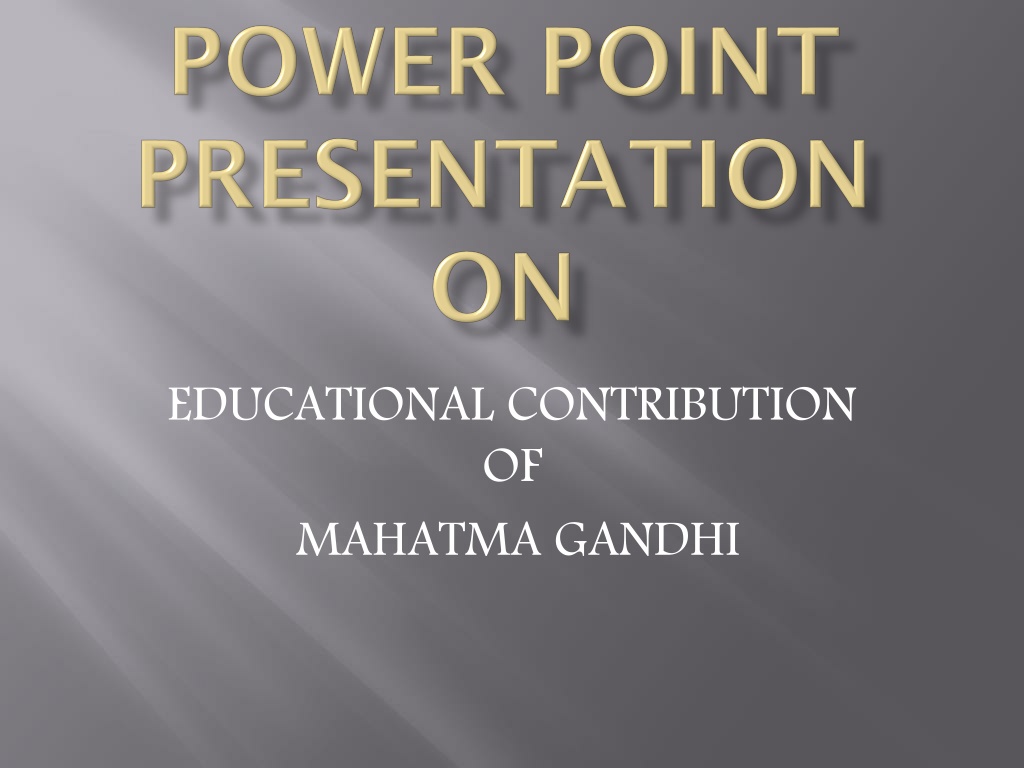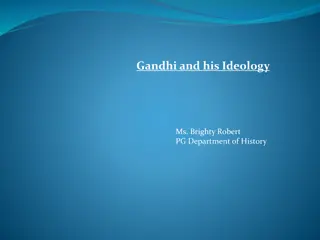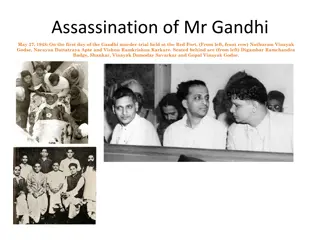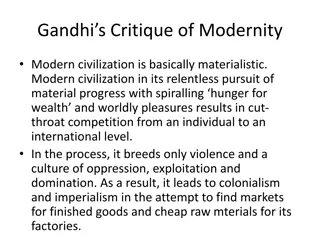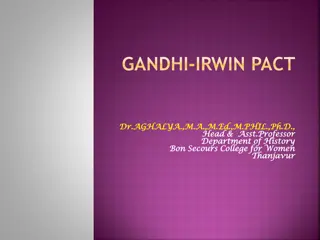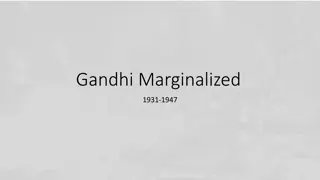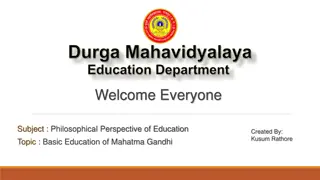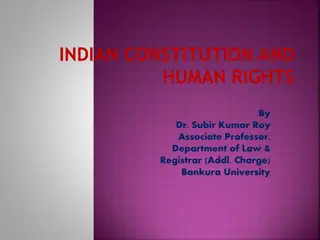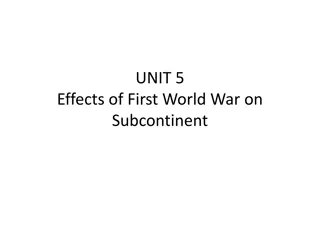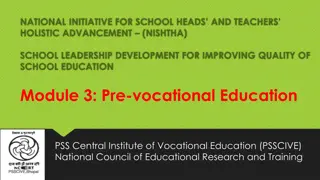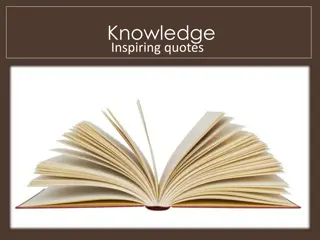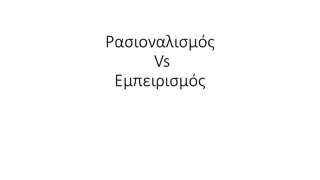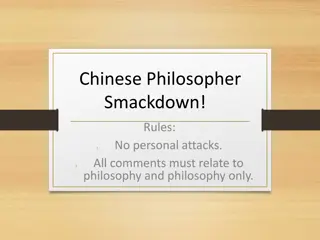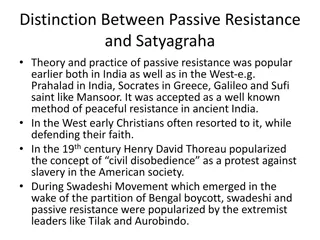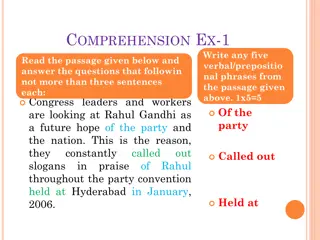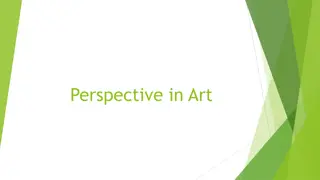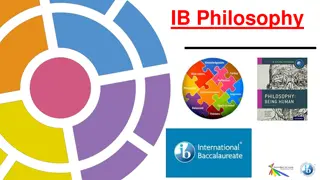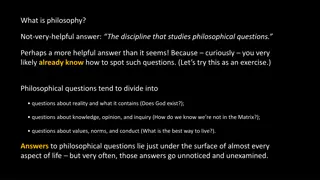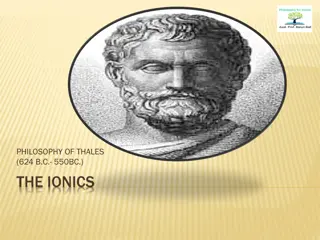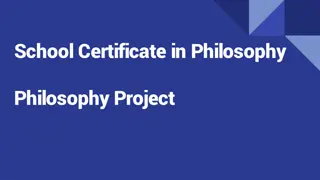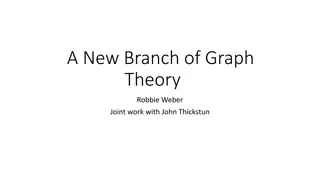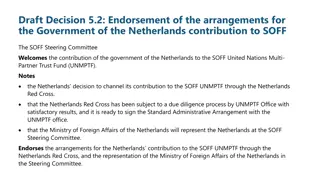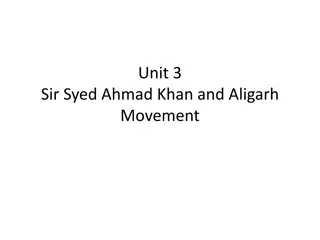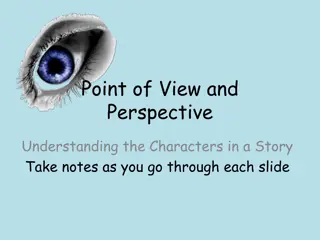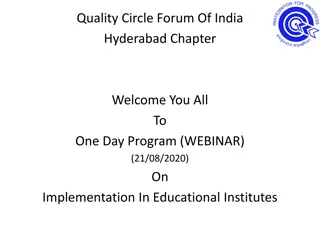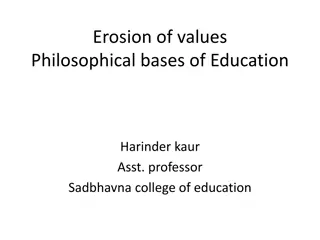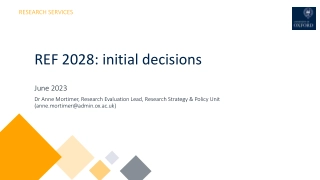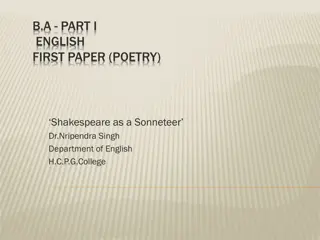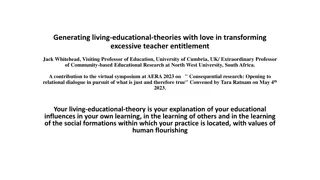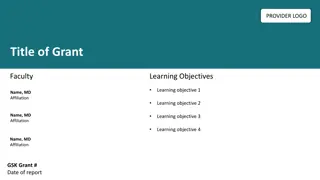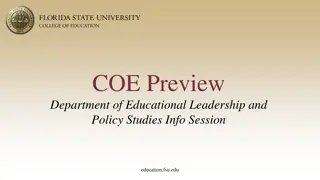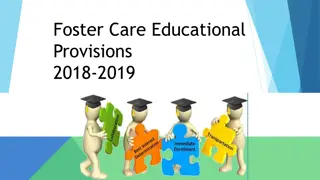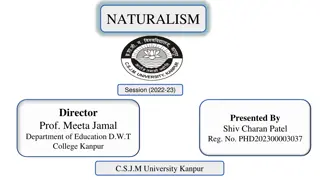Educational Contribution of Mahatma Gandhi: A Philosophical Perspective
Mahatma Gandhi's educational philosophy emphasized holistic development through literacy and craft-centered curriculum, transforming traditional education into a blend of hand, head, and heart. His approach focused on instilling values of social responsibility and practical skills. Gandhi's scheme included activities such as agriculture, spinning, weaving, mother tongue education, mathematics, social studies, general science, drawing, music, and moral science, to nurture well-rounded individuals.
Download Presentation

Please find below an Image/Link to download the presentation.
The content on the website is provided AS IS for your information and personal use only. It may not be sold, licensed, or shared on other websites without obtaining consent from the author. Download presentation by click this link. If you encounter any issues during the download, it is possible that the publisher has removed the file from their server.
E N D
Presentation Transcript
EDUCATIONAL CONTRIBUTION OF MAHATMA GANDHI
Department of Education B.Ed. First semester Session 2021-22 Paper I Philosophical Perspectives of Education Mr. S. C. Patel Assistant Professor
Mahatma Mahatma Gandhi Porbandar Porbandar in in Gujarat well well established established family His His father, father, Karamchand Porbandar Porbandar state religious religious and and virtuous Gandhiji Gandhiji was was married years years. . He He was was the the champion organized organized Satyagraha Satyagraha and 1919 1919 to to 1947 1947. . One One fanatic fanatic Nathu and and non non- -violence violence to to death Gandhi was Gujarat in in a a Vaishnava family. . Karamchand Gandhi state and and his his mother virtuous woman woman. . married with with Kasturba was born born on on 2 2 October, Vaishnava, , prosperous, October, 1869 prosperous, and 1869 at at and Gandhi was mother , , Putlibai was the Putlibai was the dewan dewan of of was a a very very Kasturba at at the the age age of of 13 13 champion of of the and various the freedom freedom movement various other other movement movement and movement from and from Nathu Ram Ram Godse Godse shot death on on January shot the January 30 30th th, , 1948 the apostle apostle of of peace 1948. . peace
According to Gandhiji literacy the This or or woman transformed the education of 3Rs (reading, writing, arithmetic) into 3Hs (hand, head and heart). This is how Gandhiji summed up his idea of true education accordingly. literacy is is neither nor the only a a means woman can neither education. . which man the beginning This is is only beginning nor the end through which can be end of of education means through be educated man educated . . Gandhiji
Curriculumin Gandhis scheme is activity centered and craft centered. As M.S. Patel has put it in style; Craft occupies the position of the sun in the vast solar system of human life. The subject in the curriculum includes in the following: 1. Basic craft Agriculture, Spinning, Weaving etc. 2. Mother tongue. 3. Mathematics 4. Social studies 5. General science 6. Drawing 7. Music. 8. Moral science
His His concept concept of of discipline Self Self control control refers self self - - discipline discipline. . He method method for for the emphasized emphasized on on giving environment environment and believed believed that that the and and high high conduct conduct in in such the the children children still teachers teachers should should make bring bring them them on on the discipline is is based refers to to inner inner discipline He oppose the attainment attainment of of discipline giving the the children children pure and higher higher social social environment the children children will will develop such type type of of an an environment still follow follow a a wrong wrong track, make use use of of their their self the right right track track. . based on on self discipline which oppose the the repressionistic repressionistic discipline. . He self - - control control. . which leads leads to to He pure natural natural environment. . He develop high high ideals environment. . If If track, then self power power to to He ideals then the the
In the views of Gandhi ji, the teacher should be an ideal person, torch of knowledge and man of good conduct. He has to function in several forms, as father, friend, assistant and guide to the students, so he should be forbearing, liberal and patient.
The The student student is is the educational educational Gandhiji s Gandhiji s view remain remain disciplined follow follow celibacy celibacy. . According to to Gandhiji student student restrained restrained and and curious the focal focal point process process. . view the the student disciplined and point of of In In student should and should According Gandhiji , , the should should be be curious. . the self self- -
According to Gandhiji, the school should be such a workshop where the teachers work properly. So much of production work should be done in them due to the joint effort of teachers and their students that they become economically dependent. He emphasized on making schools as community centres. self-
Mass Women National OTHER OTHER ASPECTS ASPECTS OF OF EDUCATION EDUCATION Co- Religious education Vocational
At first, in 1921, he placed the proposal of national education, but it could not be given a concrete form. The National Education Conference was held at Vardha in October, 1937. In it Gandhiji presented the draft of national education which is called Basic Education. This scheme of education is known as Basic education or Wardha scheme of education or Nai Talim or new education or Buniyandi Shiksha. Gandhiji used the term basic to describe his scheme of education because it is intimately related with the basic needs and interest of Indian children.
Compulsory Compulsory and children children in in 7 7 to to 14 14 years The The medium medium of of education The The whole whole education education should cottage cottage industry industry.. The The handicraft handicraft should children children and and regional regional needs The The articles articles made made by by children profit profit be be earned earned with Handicrafts Handicrafts be be taught taught in in such their their livelihood livelihood.. Besides Besides economic economic importance social social and and scientific scientific importance and free free primary primary education years of of age age group education should should be be the should be be based education should group.. the mother based on on some should be be provided provided to to all all 1) 1) mother tongue some basic tongue.. basic handicraft handicraft or or 2) 2) 3) 3) should be be selected needs.. children should with which which school school expenditure such way way as as to to enable selected on on the the basis basis of of the the abilities abilities of of 4) 4) should be be utilized expenditure should enable the utilized and should be be met the children children to to earn and economic economic met.. 5) 5) earn 6) 6) importance in in the importance should the education education of of handicrafts, should also also be be given given a a place handicrafts, its its place.. 7) 7)
Self-Dependent Plan Emphasis on all round development of men Elimination for class Discrimination Activity-Based teaching method Mother tongue as the medium of Education Proximal relationship between school and society
Incomplete plan Unsuitable for Urban areas Excessive emphasis on Handicrafts Wastage of raw material Misuse of time and energy Absence of religious Education Promote child labour
He He gave today's today's education He He said said that sports sports rather psychologically psychologically very It It is is due due to to them the the society society as as well between between the the school Today Today the the psychologist theory theory that that learning By By following following his on on providing providing environmental health health education education in in today's gave the education system that education education should rather than than mechanics very supportive them that that today, well as as the school and psychologist agrees learning should his curriculum, curriculum, emphasis environmental education, today's time the education education system system is is also system as as child also child should be mechanics. . His supportive of of modern today, for for the the child, child, there and the the society society. . agrees with should be be based based on emphasis is is being education, physical time. . child centered centered and child centered centered. . be obtained obtained through His theory modern education the development development of of there is is a a relation and through theory is is education. . relation with the on action action. . the Gandhian Gandhian being given physical and given and
